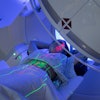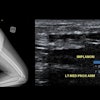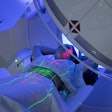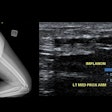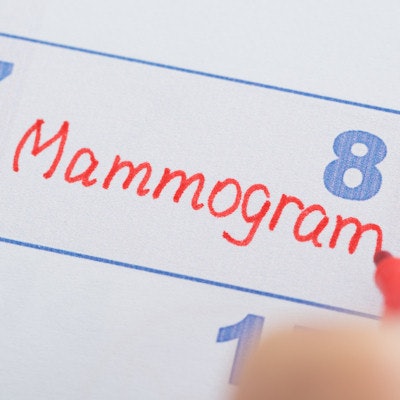
Women who are overweight may need to be screened for breast cancer more often, as these women had larger tumors at diagnosis in a study being presented by researchers from Sweden at the upcoming RSNA 2017 meeting.
Body mass index (BMI) is a measure of body fat based on height and weight. A healthy score falls between 20 and 25; a score above 25 indicates that a person is overweight. Although BMI is associated with many health risks, it has not been considered a part of breast cancer screening guidelines. But researchers from the Karolinska Institute in Sweden say it should be, because being overweight could prevent the early identification of breast lesions.
 Dr. Fredrik Strand from the Karolinska Institute.
Dr. Fredrik Strand from the Karolinska Institute.Dr. Fredrik Strand and colleagues set out to identify risk factors associated with tumors not detected until they were larger than 2 cm, as well as to explore the implications of these larger tumors for a woman's long-term prognosis. The 2-cm lesion measurement is used as a cutoff point to differentiate between stage I and stage II cancers, according to the group.
Strand's team reviewed 2,012 cases of invasive breast cancer diagnosed between 2001 and 2008. The group followed these patients when possible through the end of 2015 to determine how disease progression related to BMI and also breast density. Sweden's breast cancer screening program recommends 18- to 24-month intervals between screenings.
For cancers detected at screening, both BMI and breast density were associated with having a larger tumor at diagnosis, the researchers found. In addition, for interval cancers -- those detected within two years of a normal mammogram -- BMI was linked with having large tumors.
"Women with higher BMI had worse prognosis than women with lower BMI among interval cancers, [although breast] density showed no significant association with disease progression," the team wrote.
In addition to larger interval cancers, women with a high BMI may have other factors that put them at risk for a worse prognosis, including the molecular composition of the tumors and hormone receptor expression levels that make them harder to treat, the researchers noted.
Going forward, Strand and colleagues intend to investigate how breast density may be associated with delayed breast cancer detection. In the long term, the team plans to study artificial intelligence as a tool for tailoring screening protocols based on women's breast cancer risk.
"Our study suggests that when a clinician presents the pros and cons of breast cancer screening to a patient, having high BMI should be an important 'pro' argument -- [and] that women with high BMI should consider shorter time intervals between screenings," Strand said in a statement released by the RSNA.

